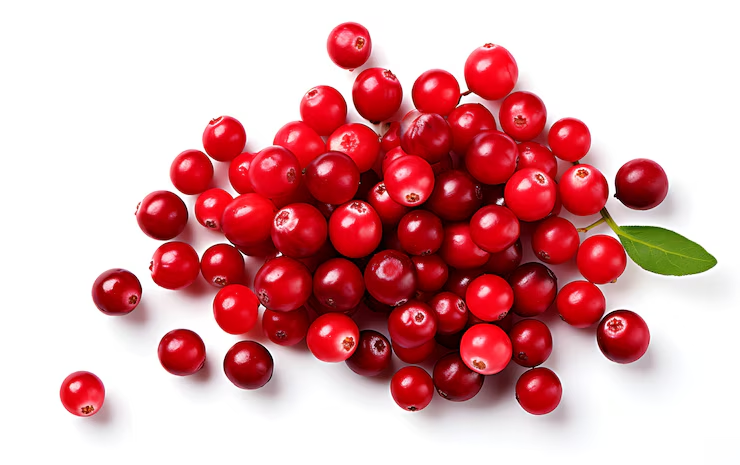Natural weight loss supplements include a wide variety of ingredients such as botanical extracts, dietary fibers, essential nutrients, and natural acids. These compounds are believed to assist with fat burning, appetite suppression, and boosting metabolic health. Common examples include green tea extract, garcinia cambogia, glucomannan, and conjugated linoleic acid (CLA), all of which have been studied for their potential roles in weight management.
While these natural weight loss supplements can be helpful, they are not magic solutions. Their effectiveness often depends on how they’re used—ideally as part of a comprehensive lifestyle plan. They may help enhance energy, support better appetite control, or encourage fat metabolism, but only when paired with other healthy habits.
To see the best results, combine natural weight loss supplements with a nutritious diet, regular physical activity, proper hydration, and quality sleep. Used responsibly, they can serve as supportive tools on your weight loss journey without replacing fundamental wellness practices.
🔬 Common Natural Supplements: What the Science Says

1. Glucomannan (Natural Weight Loss Supplements)
Glucomannan, a natural fiber extracted from the konjac root, is one of the more well-known natural weight loss supplements. It works by absorbing water in the stomach and forming a gel-like substance, which helps promote a feeling of fullness. This effect can lead to reduced calorie intake and support gradual weight loss over time.
Some clinical studies suggest that glucomannan may result in modest weight loss—approximately 0.8 kg over five weeks. However, the overall evidence remains limited and inconsistent. Not all users experience the same benefits, and results can vary depending on diet, exercise, and individual metabolism. Still, when paired with a healthy lifestyle, it may offer an extra boost in appetite control and digestion.
It’s important to note that glucomannan can cause minor side effects such as gas, bloating, or stomach discomfort. More importantly, it may interfere with the absorption of medications. To use it safely, it’s best to take glucomannan at least one hour before or after other medications. Always consult a healthcare provider before starting any natural weight loss supplements, especially if you’re taking prescription drugs or have underlying health conditions.
2. Green Tea Extract (EGCG) & Matcha (Natural Weight Loss Supplements)
Green tea and other natural sources rich in antioxidants and caffeine are often promoted for their potential fat-burning effects. These compounds may help enhance fat oxidation and increase energy expenditure, especially when combined with regular physical activity. Caffeine, in particular, can stimulate the central nervous system, temporarily boosting metabolism and promoting greater calorie burn during workouts.
However, it’s important to understand that the effects are typically modest and may not be consistent for everyone. While some individuals might notice slight improvements in weight loss or energy, others may experience little to no change. Factors such as individual metabolism, activity level, and overall diet play a significant role in how effective these ingredients are in supporting weight management.
Taking high doses of caffeine-rich supplements can also lead to side effects such as insomnia, anxiety, or gastrointestinal discomfort. Those sensitive to caffeine should be cautious and consider starting with lower amounts. As with any supplement, it’s best to use green tea extracts or similar products as a complement to a healthy lifestyle—not a replacement for balanced nutrition and exercise. Always consult a healthcare professional before adding natural weight loss aids to your daily routine.
3. Berberine (Natural Weight Loss Supplements)

Berberine, a natural compound found in plants like barberry, has gained attention for its potential role in supporting weight loss and metabolic health. It works by activating key metabolic pathways, including AMP-activated protein kinase (AMPK)—often referred to as the body’s “metabolic master switch.” This activation helps enhance insulin sensitivity, regulate blood sugar levels, and may support the breakdown of stored fat, particularly belly fat.
Several studies suggest that berberine may aid in reducing waist circumference and improving markers related to obesity and type 2 diabetes. While it’s not a magic solution, it shows promising results when combined with a healthy diet and active lifestyle.
However, berberine is known for its low bioavailability, meaning the body doesn’t absorb it easily. To overcome this, it’s often taken in divided doses throughout the day. Some users may also experience mild digestive side effects, such as stomach cramps, bloating, or diarrhea, especially when starting out or taking high doses.
As with any supplement, it’s important to consult with a healthcare provider before using berberine—especially if you’re on medication or have existing health conditions. Used properly, it may be a helpful natural addition to a balanced weight loss strategy.
4. Garcinia Cambogia (HCA) (Natural Weight Loss Supplements)
Garcinia cambogia is a tropical fruit extract commonly found in natural weight loss supplements. Its active compound, hydroxycitric acid (HCA), is believed to aid in weight loss by inhibiting an enzyme called ATP citrate lyase, which plays a role in the body’s fat production process. By blocking this enzyme, HCA may reduce the formation of new fat and help curb appetite.
While the theory is promising, human studies have shown mixed results. Some trials suggest modest weight loss—around 1.3 kg (about 2.8 pounds) over 12 weeks—but others report no significant benefit when compared to a placebo. Because of this inconsistency, experts consider the overall effect of Garcinia cambogia on weight loss to be limited or unreliable.
Moreover, concerns have been raised regarding its safety. There have been reports of liver toxicity in some individuals after taking Garcinia-based supplements, especially when combined with other ingredients. Symptoms ranged from mild digestive upset to more serious liver-related issues.
As with any supplement, it’s essential to consult a healthcare professional before starting Garcinia cambogia, particularly if you have liver conditions or are taking medications. While it may help some, it is not a guaranteed or risk-free solution for weight loss.
5. CLA (Conjugated Linoleic Acid)

Certain supplements claim to enhance fat oxidation and help maintain lean muscle mass, particularly when combined with regular physical activity. These compounds are often marketed as fat burners or metabolic boosters, and may include ingredients like L-carnitine, CLA (conjugated linoleic acid), or green tea extracts. The idea is that they help your body use fat more efficiently for energy during workouts, potentially aiding in weight management and muscle preservation.
However, research in humans shows mixed results. Some studies report modest reductions in body fat and slight improvements in body composition when these supplements are paired with consistent exercise. Others show no significant changes, suggesting that their effectiveness can vary widely between individuals and depending on factors like diet, training intensity, and dosage.
While these supplements may appear beneficial for short-term use, long-term use raises concerns. Some evidence suggests that prolonged intake may impair insulin sensitivity, which could negatively impact blood sugar control over time. Additionally, side effects such as digestive discomfort or headaches may occur in certain individuals.
As with any supplement, it’s important to approach these products cautiously. Consulting with a healthcare provider before use—especially for those with underlying health conditions—is highly recommended.
6. African Mango (Irvingia gabonensis)
Some early studies have shown promising results regarding weight loss, with reports of individuals losing up to 12 kilograms over a 10-week period when using certain natural supplements or treatments. These findings suggest that these interventions may support fat loss, appetite control, or improved metabolism. However, it’s important to note that these results come primarily from small-scale studies, often with limited participants and short durations.
While such outcomes sound encouraging, more extensive and high-quality clinical trials are needed to confirm their effectiveness and long-term safety. Without larger, well-controlled studies, it’s difficult to determine whether the observed weight loss was due to the supplement itself, other lifestyle changes, or placebo effects.
That said, many of these supplements appear to be well tolerated by most users. Side effects are generally mild when taken in appropriate doses and may include minor digestive issues like bloating or nausea in some cases.
As with any weight loss strategy, it’s essential to combine these approaches with a healthy diet, regular physical activity, and sustainable lifestyle changes. Always consult with a healthcare professional before starting any new supplement to ensure it aligns with your individual health needs and goals.
7. Other Herbs & Fibers (Natural Weight Loss Supplements)
Other Herbs & Fibers have gained popularity for their potential role in supporting weight management and overall health. Natural fibers like psyllium husk, inulin, and glucomannan can help increase feelings of fullness, reduce appetite, and support digestive health. These fibers absorb water, expand in the stomach, and slow digestion, making them useful for portion control and reduced snacking.
On the herbal side, ingredients such as dandelion root, green tea extract, and cayenne pepper are often included in weight loss blends. While these herbs may boost metabolism slightly or support detoxification, scientific evidence for significant weight loss benefits is limited.
It’s important to note that while many herbs and fibers are natural, they can still cause side effects or interact with medications. Always consult a healthcare provider before adding new supplements to your routine. When used wisely, these natural options can complement a balanced diet and lifestyle.
- Psyllium husk: May modestly reduce appetite but little evidence for weight loss.
- Gymnema sylvestre: Ayurvedic herb that suppresses sweet taste and reduces sugar cravings.
- Other spices like turmeric, fennel, ginger, cinnamon, curry leaves, black pepper, and dandelion root may help with digestion and inflammation but offer mild effects alone .
⚠️ Safety, Risks & Regulatory Warnings (Natural Weight Loss Supplements)
Unlike prescription medications, dietary supplements are not tightly regulated, which means their quality, safety, and effectiveness can vary widely. Many products on the market may contain undisclosed pharmaceutical ingredients, contaminants, or potentially harmful substances. When taken in high doses or without proper guidance, some of these supplements can lead to serious health issues, including liver or kidney damage.
One concerning example is bitter orange, a common ingredient in weight loss supplements marketed as fat burners. It can significantly raise blood pressure and has been associated with dangerous side effects like heart attacks and strokes. These risks closely resemble those posed by ephedra, a now-banned stimulant once popular in weight loss products.
Adding to the concern, many weight loss supplements are promoted with misleading or exaggerated claims, promising rapid fat loss without effort. Unfortunately, these claims often lack scientific backing and may create false hope.
Ultimately, no supplement can replace the foundation of healthy weight loss, which is built on balanced nutrition, regular physical activity, sufficient sleep, and stress management. Before taking any supplement, it’s crucial to consult a healthcare provider to ensure safety—especially if you have underlying health conditions or are taking other medications.
✅ Top 8 Tips to Effectively Use Natural Weight Loss Supplements

- Consult a Healthcare Provider First Before starting any natural weight loss supplements, it’s crucial to thoroughly assess your medical history. Despite being marketed as safe due to their natural origins, these supplements can still have powerful effects on your body. Understanding your health background helps prevent potential interactions or complications.
- Many natural weight loss supplements can interact with prescription medications or influence underlying health conditions. For example, those with thyroid disorders, liver or kidney issues, or metabolic diseases need to be especially cautious. Even natural compounds can alter how your body processes medications or affect hormone levels, which might worsen existing conditions if not properly managed.
- Consulting with a healthcare professional before using natural weight loss supplements ensures safe, effective, and personalized guidance. Your doctor can help identify any risks, recommend suitable supplements, and advise on proper dosing. This careful approach maximizes benefits while minimizing dangers, making your weight loss journey safer and more successful in the long run.
- People with thyroid issues, liver or kidney disorders, or metabolic conditions should be particularly cautious. Certain natural weight loss supplements may alter hormone levels, enzyme functions, or the way your body processes medications. Without medical guidance, using them could lead to unwanted side effects or worsen an underlying health problem.
- To ensure safety and effectiveness, always consult your healthcare provider before starting any natural weight loss supplements. They can help determine whether a supplement is appropriate for your health status and advise on proper dosing. Taking this step is essential for avoiding risks and ensuring that your weight loss approach is both safe and supportive of your long-term health goals.
- Set Realistic Expectations These supplements generally produce mild results over several weeks. They’re not standalone solutions but may support modest progress.
- Prioritize Fiber Supplements Smartly Glucomannan or psyllium can help control hunger when taken 30 minutes before meals with ample water. Avoid in esophageal disorders.
- Stay Hydrated and Eat Balanced Meals
Supplements work best alongside a high-protein, fiber-rich diet and regular meals to support metabolism and digestion. - Pair With Regular Physical Activity Exercise enhances fat oxidation and supports lean tissue; enhancing the small effects from supplements like green tea, CLA, or berberine.
- Cycle or Rotate Supplements Avoid continuous use of high doses. Cycling herbs helps reduce risk of tolerance and organ stress.
- Watch for Adverse Effects Monitor digestion, sleep, heart rate, mood, and liver function. Stop use if you suspect toxicity or major side effects.
- Research Quality & Source Use supplements from reputable brands with third-party testing. Avoid aggressive marketing claims and cheap sources.
🧪 Summary Table of Key Supplements (Natural Weight Loss Supplements)
| Supplement | Proposed Mechanism | Potential Benefit | Risks & Notes |
| Glucomannan / Psyllium | Soluble fiber—appetite control | Mild appetite suppression | GI discomfort; choking risk |
| Green Tea / EGCG | Caffeine + catechins boost fat burning | Modest metabolic boost | Insomnia, jitteriness |
| Berberine | Blood sugar regulation, AMPK | May improve insulin sensitivity | Mild GI side effects |
| Garcinia Cambogia (HCA) | Inhibits fat synthesis | Minimal weight loss benefit | Possible liver toxicity |
| CLA | Enhances oxidation, preserves muscle | Slight fat mass reduction | GI upset; possible insulin resistance |
| African Mango | Appetite control, lipid metabolism | Promising but small studies | Needs more research |
| Gymnema sylvestre | Sweet taste suppression | May reduce candy cravings | Few side effects reported |
| Other spices (turmeric, cinnamon, fennel, etc.) | Antioxidants, digestion support | Supports wellness not weight loss | Mild benefits, safe in diet |
🧠 FAQs: Natural Weight Loss Supplements
1. What are natural weight loss supplements? (Natural Weight Loss Supplements)
Natural weight loss supplements are products made from plant extracts, fibers, acids, and nutrients designed to support fat burning, appetite control, and metabolism using natural ingredients.
2. Are natural weight loss supplements safe?
Most natural supplements are generally safe when used as directed. However, they can interact with medications or health conditions. Always consult a healthcare professional before starting any supplement.
3. Do natural weight loss supplements really work?
Some natural supplements may support weight loss by boosting metabolism or reducing appetite, but they are most effective when combined with a healthy diet and regular exercise.
4. How long does it take to see results?
Results vary by individual and supplement type but generally appear after consistent use over several weeks to months alongside lifestyle changes.
5. Can I take natural weight loss supplements with medications?
Certain supplements can interfere with medications or exacerbate health issues. It’s crucial to discuss all supplements with your healthcare provider to avoid adverse interactions.
6. Are there any side effects?
Side effects vary but can include digestive upset, headaches, or allergic reactions. Proper dosing and medical guidance help minimize risks.
7. Can natural supplements replace diet and exercise?
No. Natural supplements should complement—not replace—a balanced diet, physical activity, and healthy lifestyle habits for sustainable weight loss.
8. Where can I buy safe natural weight loss supplements?
Purchase from reputable brands and verified sellers, ideally those with transparent ingredient lists and positive customer reviews. Avoid unregulated or suspicious sources.





